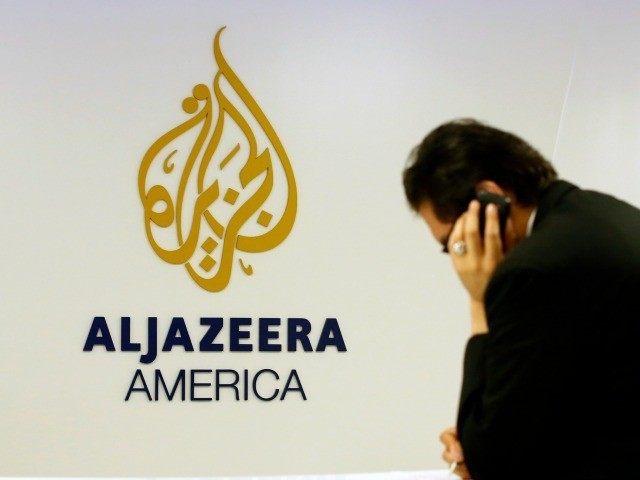Al Jazeera’s run of bad publicity got a little worse this week, when the online Arabic newspaper New Khalij published an article citing part of a cable from the Saudi Embassy saying the network answers to the Qatar government and is stocked with reporters who are part of the Muslim Brotherhood.
The Arabic language cable was among a batch of internal records published by Wikileaks.
“[W]hatever has been said about the impact of the journalists working in Al-Jazeera, having their weight and their agenda, and most of them belonging to the Muslim Brotherhood or being sympathizers with it, the final say in the end is with Qatari decision makers, with them the ones who determine its objectives, and the ones who identify the direction of the channel to achieve their objectives,” the New Khalij report says, citing the Saudi cable.
The cable added that “the existence of a number of prominent journalists belonging to the Muslim Brotherhood in the channel is a matter worthy of concern, as the rulers of Qatar and its Sunni people are of the Hanbali school, and believe in the movement of Sheikh Muhammad ibn Abd al-Wahhab, and the Muslim Brotherhood does not have roots the Qatari society.”
Qatar wants to influence the political decision-making of neighboring countries through weaving good relations with the Muslim Brotherhood, the cable said. The reason the network turns to “religious leaders such as Sheikh Yusuf al-Qaradawi and political ones such as Hamas derives from Qatar believing that in order to be effective in the region, it must have bargaining chips in many countries, and this is what is achieved for it by the Muslim Brotherhood in its global structural organization and its presence in most Arab and even Islamic countries such as Turkey.”
The Saudi assessments fit neatly with claims made in recent federal lawsuits filed against Al-Jazeera America (AJA) by former senior employees. The lawsuits claim the network’s U.S. branch discriminated against non-Muslim employees and deliberately pushed anti-U.S. and anti-Israeli biases.
Shannon High-Bassalik’s complaint claims that Al Jazeera is a place “where truth and objectivity are set aside to cater to the Company’s pro-Arabic prejudices.” Instead,employees were told that AJA was here to bring “the Arabic viewpoint to America,” which explained in part why it aired programs critical of the U.S., Egypt and Israel.
It’s a network owned and controlled by a foreign government that aims to influence U.S. opinion, and by extension, U.S. policy. The Foreign Agents Registration Act(FARA) provides an exemption to media organizations and journalists who act on behalf of foreign principals, but only within designated parameters. Among those parameters, the media organization must be one that “is not owned, directed, supervised, controlled, subsidized, or financed, and none of its policies are determined by any foreign principal defined in subsection (b) of this section, or by any agent of foreign principal required to register under this subchapter…”
The recent allegations in separate federal lawsuits and now in leaked Saudi Arabian cables raises the potential for significant FARA violations by Al-Jazeera America, and appears to be ripe for investigation.
This article originally appeared at the Investigative Project on Terrorism.

COMMENTS
Please let us know if you're having issues with commenting.